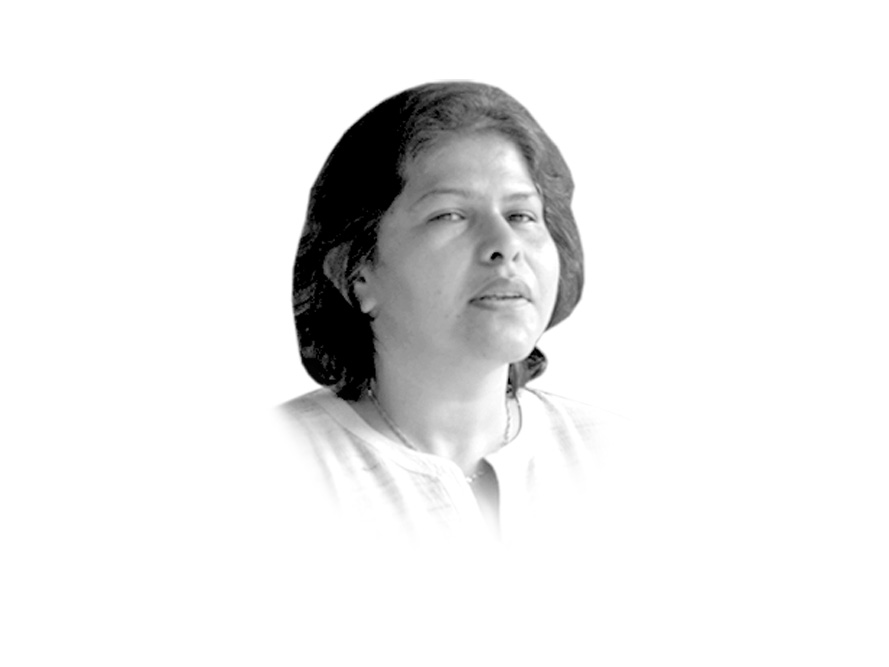
Violence is a natural consequence when justice is limited to serving interests of the elite. At least this is what people of the katchi abadi of Sector I-11 in Islamabad must have felt when they were bulldozed into the ground, pushed out, and not even permitted to move into houses of their relatives anywhere in Punjab or the capital territory. They were punished by the death of an infant during the police and paramilitary operation, for the sin of overstaying their welcome in Islamabad (these people have, over the years, mainly come from the country’s north to build the capital). The majority of these people were not Afghans, as many would like you to believe, but Pakistanis, a fact admitted by the CDA to the court. Their only sin seemed to be their poverty and ethnicity. The latter is popularly associated these days with terrorism. So, these ‘internally displaced persons’ were told to go back to where they came from.
God forbid if something like this happens in the UK, Europe or even Israel, an action such as this against the dispossessed would have immediately been labelled as racism or fascism. The action in Islamabad is certainly not the same, as all we are trying to do is turn poverty ‘on and off’ by killing or displacing the poor.
This is almost what seems to have happened recently in case of the forced removal of the katchi abadi in I-11. The case was triggered by an application submitted by a resident against NADRA, to the Islamabad High Court, for refusal to issue a national identity card. For reasons unknown, the honourable court decided to make the local administration in Islamabad and the interior ministry parties to the case. It appears that there is an even bigger plan to rid Islamabad of all the ‘ugly’ katchi abadis.
Other states also engage in ‘gentrification’ of urban centres, but they do not treat citizens the way the I-11 inhabitants were treated. Sector I-11, however, is not the only place where you will see the CDA in action. Reportedly, there is a plan by the CDA to evict 85,000 poor people from illegal katchi abadis in Islamabad, for which the authority has submitted a plan to the Islamabad High Court. A few days ago, similar action also took place in Bahawalpur.
It is possible that the seemingly proactive interior ministry jumped its queue and briefed the court about how presence of the socially and economically dispossessed compromised national security. In the past, many terror suspects were caught from the area, but certainly not when the operation was launched to remove the poor folk.
I might have felt overjoyed at the prospects of a posh Islamabad, wiped off all socioeconomic impurities, had I not remembered another Pakistani court judgment pertaining to the economically, socially and politically powerless. In September 2003, the Supreme Court reminded a retired brigadier of the worth of being mindful of poor people. The famous but forgotten judgment pertained to the case of one Brigadier Basheer versus Abdul Karim, in which the former appealed to the Supreme Court to overturn the decision of the Lahore High Court (Bahawalpur bench) against the award of 0.375 acres to the said officer. In 1993, the provincial government allotted 33,866 acres of land to the military without checking the title of the land or the fact that some of it was already leased to landless peasants from the area. Brigadier Basheer was unhappy about the landless peasant, Abdul Karim, occupying around three kanals of his allocation of 49.5 acres. The Supreme Court also rebuked the district collector for acting capriciously and arbitrarily transferring land marked as “land not available”, for allotment. While upholding Abdul Karim’s right to cultivate the land, the Court had also reproached the said retired officer for impinging upon the rights of a poor peasant. The judgment quoted from American author John Steinbeck’s Grapes of Wrath:
“And the great owner, who must lose their land in an upheaval, the great owners with access to history, with eyes to read history and to know the great fact: when property accumulates in too few hands, it is taken away. And that companion fact: when a majority of people are hungry and cold they will take by force what they need. And the little screaming fact that sounds through all history: repression works only to strengthen and knit the repressed. The great owners ignored the three cries of history. The land fell into fewer hands, the number of the dispossessed increased, and every effort of the great owners was directed at repression. The money was spent for arms, for gas to protect the great holdings, and spies were sent to catch the murmuring of revolt so that it might be stamped out. The changing economy was ignored, plans for the change ignored; and only means to destroy revolt were considered, while the causes of revolt went on.”
Sadly, the case never became precedence. It seems the rulers have happily forgotten all about it.
Published in The Express Tribune, August 6th, 2015.
Like Opinion & Editorial on Facebook, follow @ETOpEd on Twitter to receive all updates on all our daily pieces.


1719660634-1/BeFunky-collage-nicole-(1)1719660634-1-165x106.webp)

1732276540-0/kim-(10)1732276540-0-165x106.webp)







COMMENTS (14)
Comments are moderated and generally will be posted if they are on-topic and not abusive.
For more information, please see our Comments FAQ